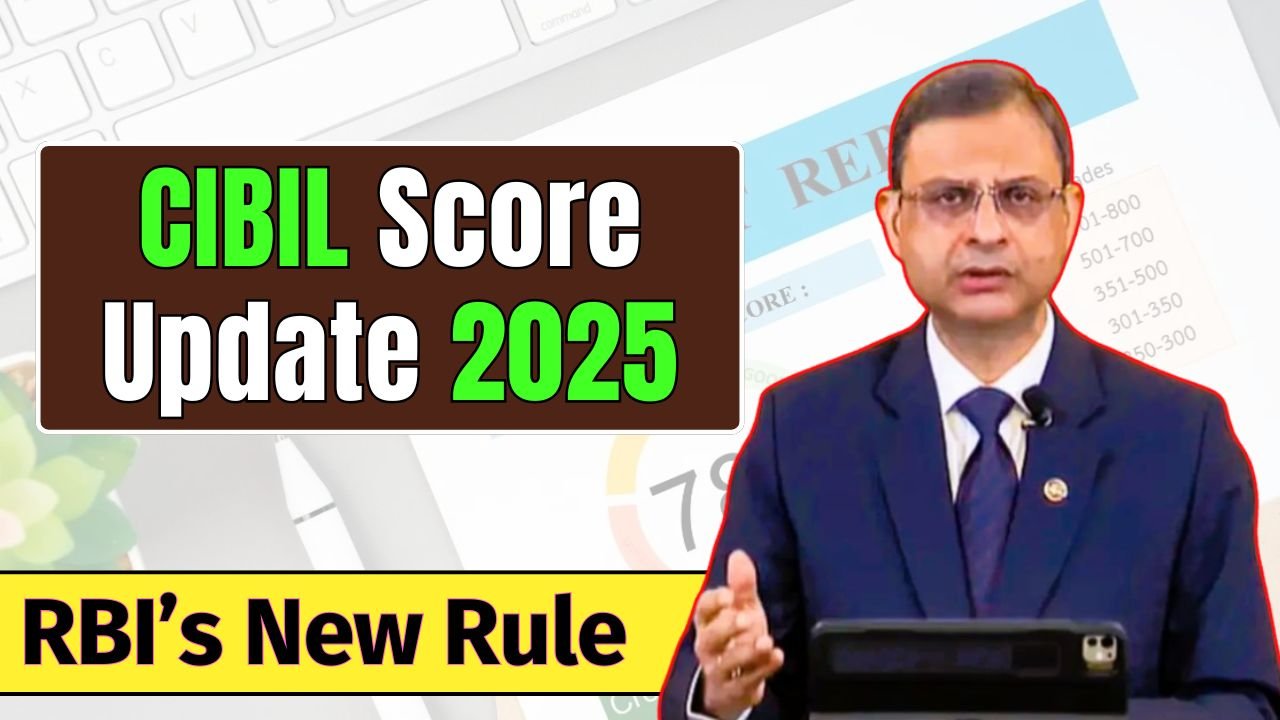In a significant move aimed at making credit more accessible and fairer, the Reserve Bank of India (RBI) has introduced new guidelines in 2025 that bring much-needed relief to borrowers struggling with their credit profiles. These changes to the CIBIL score framework are designed to ensure transparency, reduce unwarranted penalization, and offer consumers a better chance to rebuild their creditworthiness.
What’s New in the RBI’s 2025 CIBIL Score Update?

The Reserve Bank of India has mandated changes that address long-standing concerns about the way credit bureaus calculate and report credit scores. Some of the key highlights include:
- Shorter default reporting period: Defaults on loans or credit cards will now be reported for a shorter duration, reducing from the earlier 7 years to 5 years, easing the burden on borrowers with past hiccups.
- Enhanced data accuracy: Lenders and credit bureaus must improve the accuracy of the data they share. Borrowers can now expect quicker corrections of errors affecting their scores.
- Credit utilization transparency: The revised guidelines stress that credit utilization ratios (how much credit you use compared to your limit) should be assessed more fairly, preventing scores from dipping too much for temporary spikes.
- Improved grievance redressal: The new norms require credit bureaus to set up faster and more transparent grievance mechanisms, ensuring borrowers can resolve disputes about their scores efficiently.
Why This Update Matters
Credit scores have a huge impact on loan approvals, interest rates, and even rental agreements. Previously, many borrowers faced prolonged setbacks due to minor or old credit issues, often because the system lacked flexibility or quick error resolution. With RBI’s new rules:
- Borrowers with past financial issues can look forward to earlier rehabilitation of their credit history.
- Temporary financial setbacks like short-term missed payments or high credit utilization won’t disproportionately impact the score.
- Increased accuracy and transparency mean fewer surprises for consumers during loan processing.
What Borrowers Should Do Now
If you’re a borrower or planning to take a loan soon, here’s what you should keep in mind:
- Check your CIBIL score regularly: With the improved grievance redressal process, it’s easier to correct mistakes.
- Maintain healthy credit behavior: Timely payments and lower credit utilization remain crucial.
- Be proactive with lenders: If you face financial difficulty, communicate early to avoid defaults.
- Monitor credit reports from all bureaus: RBI encourages borrowers to be aware of reports from multiple credit agencies, as information may vary.
Industry Reactions and Outlook
Financial experts and lending institutions have welcomed the RBI’s new rules. Banks expect fewer non-performing assets (NPAs) over time as borrowers get second chances to improve credit health. Consumers are optimistic that the reforms will open doors to loans for many previously sidelined due to old credit issues.
Conclusion
The RBI’s 2025 update to the CIBIL scoring system marks a positive shift towards a more borrower-friendly credit ecosystem in India. By reducing the burden of past defaults, improving data accuracy, and enhancing transparency, the new rules promise to empower millions of Indians in their journey towards financial inclusion and better credit access.








